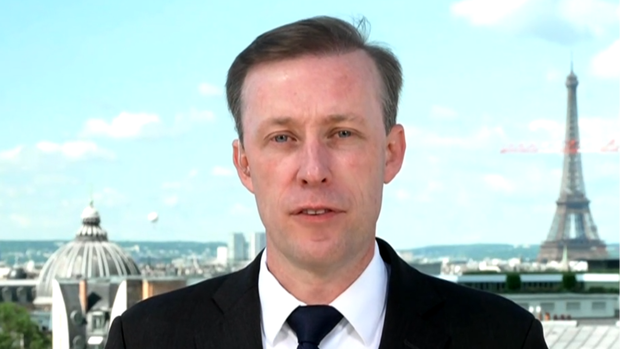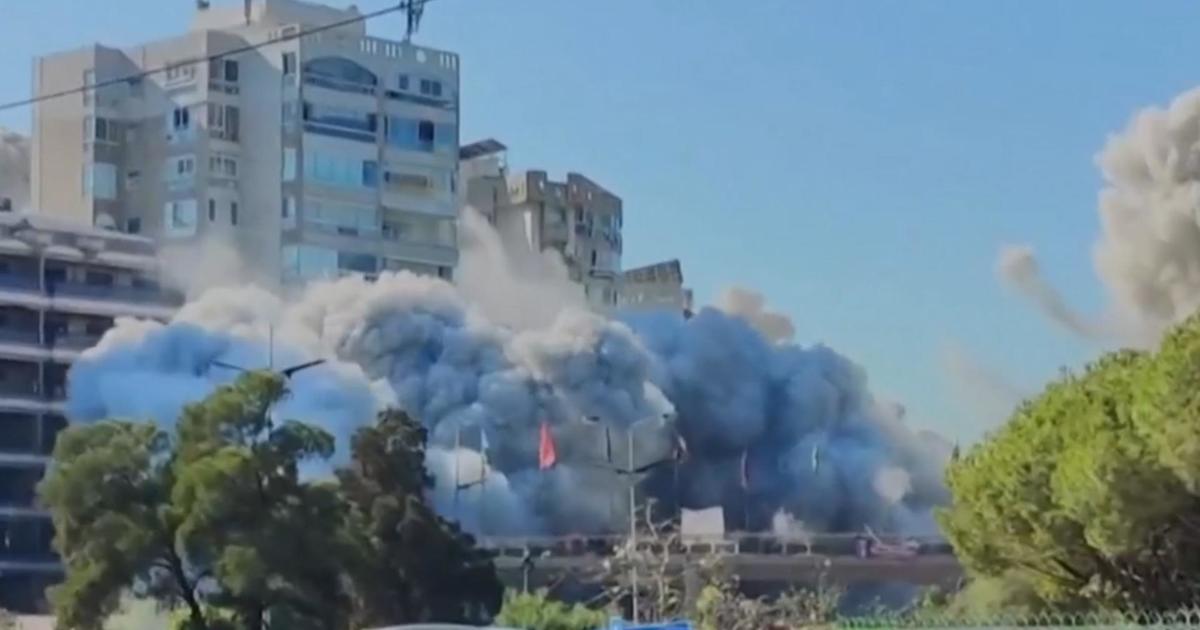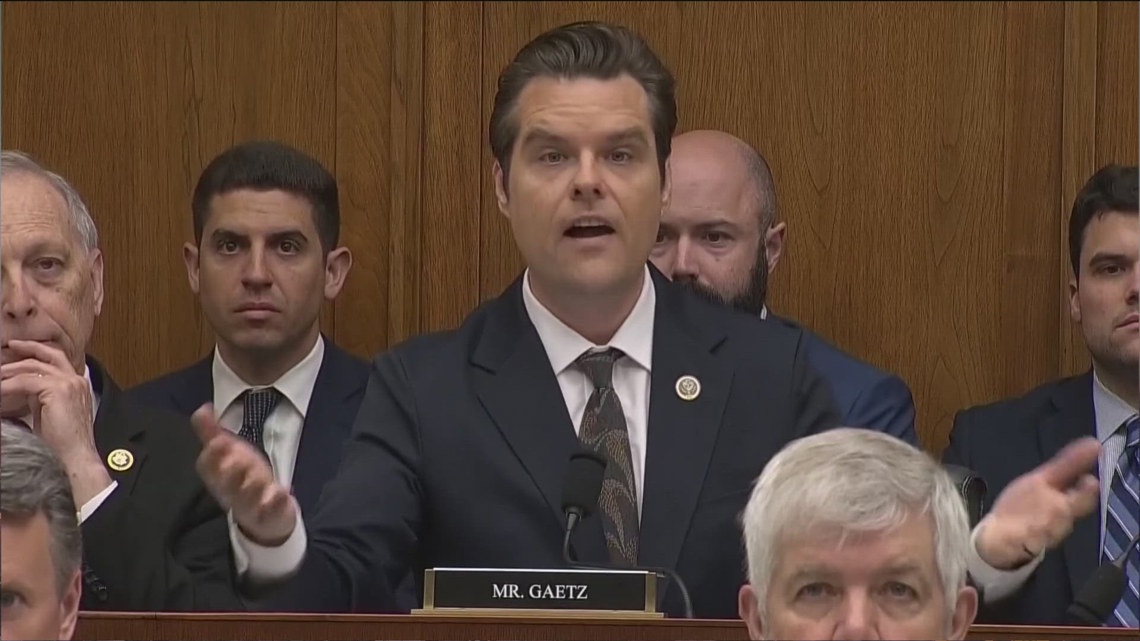CBS News
NSA Jake Sullivan says “there could be a cease-fire tomorrow” if “Hamas would say yes to the deal”

Washington — National Security Advisor Jake Sullivan said Sunday that “now is the moment” for a cease-fire in the war in Gaza, urging Hamas to accept a deal with Israel.
“There could be a cease-fire tomorrow, today even, if Hamas would say yes to the deal,” Sullivan said Sunday on “Face the Nation.”
Negotiators from the U.S., Qatar and Egypt have been working toward an agreement between Israel and Hamas that would start to bring an end to the war. Meanwhile, four Israeli hostages taken by Hamas were rescued by Israeli security forces during a raid in central Gaza on Saturday, which came with U.S. support, mainly in the form of intelligence. And negotiations are ongoing for the remaining hostages’ release, which include five U.S. citizens.
Sullvan said that the “most effective, certain and right way” to return all of the hostages is with a “comprehensive cease-fire and hostage deal” that President Biden has highlighted in recent days and Israel has accepted.
CBS News
“If Hamas would say yes to that deal, there would be a cease-fire in place, hostages would be coming home, more humanitarian aid would be surging in, and a better day for the Palestinian people would begin to unfold,” Sullivan said. “So what we would like to see is for that deal to get into place, because it is the surest way to get the hostages home.”
But there have been accusations that Prime Minister Benjamin Netanyahu is the holdout to a deal, which Mr. Biden acknowledged in a recent interview with Time. When asked whether Netanyahu is prolonging the conflict for political purposes, the president answered that “there is every reason for people to draw that conclusion.”
The latest offer would involve releasing vulnerable hostages and Palestinian prisoners held in Israeli detention facilities, coupled with a six-week cessation of violence and a surge of humanitarian aid.
Mr. Biden outlined the proposal late last month, which he said is “a roadmap to an enduring cease-fire and the release of all hostages.” More broadly, the proposal would have three phases, with the later phases including negotiating a permanent end to hostilities and the initiation of a major reconstruction plan for Gaza.
When asked whether the raid that returned the four Israeli hostages could imperil the chances of any diplomatic agreement, Sullivan said he couldn’t predict Hamas’ calculus, but urged that “the whole world is looking to Hamas to say yes, because for all those people, for all these months who have been calling for a cease-fire, now is the moment.” In the operation that led to the return of the four hostages, the Hamas-run government media office in Gaza said 246 Palestinians were killed and over 400 were injured.
“There is only one answer to all of this, and it’s the answer I keep coming back to, which is a cease-fire and hostage deal that would end the suffering, end the conflict, end the war, and bring all of the hostages home,” Sullivan said. “So it’s time for Hamas to come to the table, say yes, and let’s end all of the suffering that is taking place in Gaza right now.”
The developments come as Israeli Prime Minister Benjamin Netanyahu is set to address a joint meeting of Congress on July 24. Sullivan said he’s hopeful that by the time that happens, a cease-fire and hostage deal will be in place.
CBS News
U.S. received Iran’s written assurance it was not actively trying to assassinate Trump

The U.S. received written assurance from Iran before the presidential election that its leadership was not actively trying to assassinate President-elect Donald Trump, CBS News confirmed, according to a source with direct knowledge of the correspondence. The message arrived after the White House in September affirmed that killing a former U.S. president or former U.S. official would be seen by the Biden administration as an act of war.
“We consider this a national and homeland security matter of the highest priority, and we strongly condemn Iran for these brazen threats,” National Security Council spokesman Sean Savett said in a statement in September.
Iran said in its message, which was conveyed by a third party, that it understood this premise. The Wall Street Journal first reported Iran’s message to the U.S.
The Justice Department is currently prosecuting at least two individuals alleged to have been part of murder-for-hire plots to kill Trump while he was still a candidate. One operative working for Iran’s Islamic Revolutionary Guard Corps told federal investigators that he was tasked in September with “surveilling, and, ultimately, assassinating” Trump, according to court records unsealed last week.
Prosecutors said Farhad Shakeri, who is believed to be residing in Iran, told investigators in a phone interview that unnamed IRGC officials pushed him to plan an attack against Trump to take place in October. If the plan could not come together in time, the Iranian officials directed Shakeri to delay the plot until after the election because the official “assessed that [Trump] would lose the election,” the charging documents said.
In early August, a Pakistani national with alleged ties to Iran was arrested and charged with plotting a murder-for-hire scheme targeting U.S. government officials and politicians, according to charging documents unsealed Tuesday.
A U.S. official pointed out that Iran did not task its most effective proxy force, Hezbollah, with carrying out these plots. This official described Iran’s approach to date as “nice if it works. If it doesn’t, then it’s not a problem.”
In response to inquiries suggesting that “Iran told U.S. it wouldn’t try to kill Trump”, the Permanent Mission of the Islamic Republic of Iran said it would not comment on official messages between two countries.
The mission said in a statement, “The Islamic Republic of Iran has long declared its commitment to pursuing Martyr Soleimani’s assassination through legal and judicial avenues, while adhering fully to the recognized principles of international law.”
Trump has raised the ire of Iranians for a few reasons. He exited the international Iran nuclear agreement, which had lifted some sanctions in exchange for restrictions on Iran’s nuclear program. He also directed the 2020 airstrike that killed top Iranian commander Gen. Qasem Soleimani. Since then, some Trump administration officials and military officials received threats from the regime, among them, Robert O’Brien, who was national security adviser during the strike. His predecessor in the job, John Bolton, who was part of the maximum pressure campaign that exerted sanctions pressure on Tehran, has also received threats.
In 2022, the U.S. intelligence community assessed that Iran would threaten Americans — both directly and via proxy attacks — and was committed to developing networks inside the U.S. Two persistent threat assessments submitted to Congress by the State Department in January 2022 cited a “serious and credible threat” to the lives of former Secretary of State Mike Pompeo and former Trump administration Iran envoy Brian Hook. The non-public assessments showed that throughout 2021 and again in 2022, the State Department determined that round-the-clock, U.S.-taxpayer-funded diplomatic security details were needed to protect both men. That continues today.
Multiple former officials have spoken to CBS about duty-to-warn notices that they have recently received from the FBI and other agencies regarding the ongoing threat from Iran and Iranian-hired actors, implying the U.S. is taking the threat seriously and not taking the Iranian regime’s assurances at face value.
contributed to this report.
CBS News
National security implications of Trump’s Cabinet picks

Watch CBS News
Be the first to know
Get browser notifications for breaking news, live events, and exclusive reporting.
CBS News
Doctor explains how RFK Jr.’s plans could affect Americans’ health

Watch CBS News
Be the first to know
Get browser notifications for breaking news, live events, and exclusive reporting.










